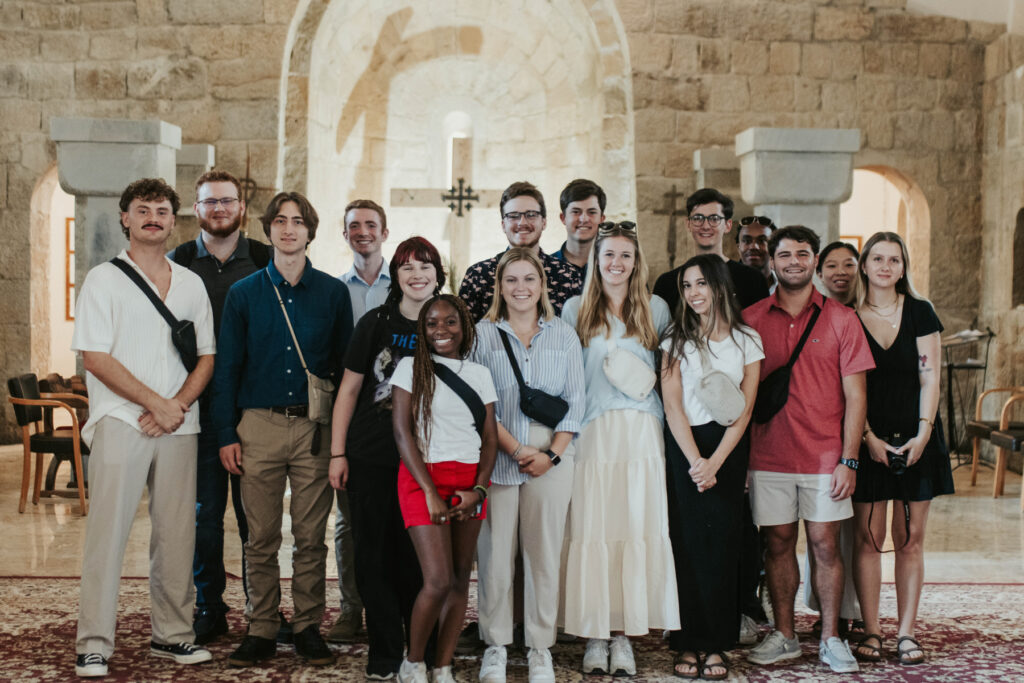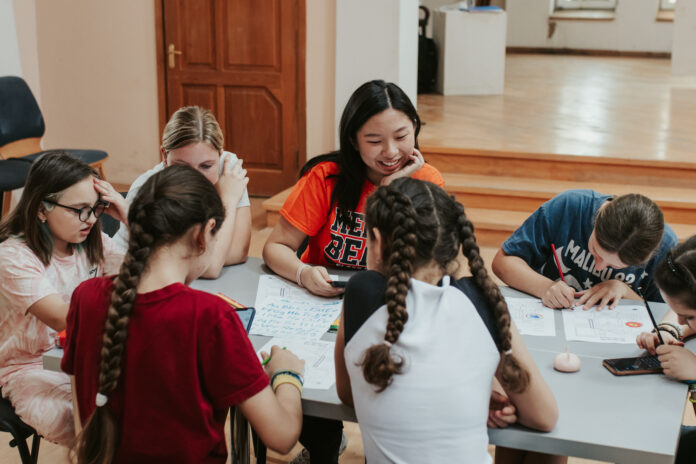
Editor’s note: This column was written by Harris Wallace, a sophomore majoring in philosophy, politics and economics, and Anna Hale, a senior Stamps Scholar majoring in political science. Both students are part of the Mercer Honors program.
In a repurposed fellowship hall at the Beteli Center for refugees, not far from the center of Tbilisi in the Republic of Georgia, a marvel of modern-day diplomacy is taking place. No treaties are being signed here, and no international alliances are being strengthened. Rather, this unassuming venue, which could be mistaken for a simple retirement home, is hosting dozens of refugees from across Eastern Europe in the picturesque Georgian countryside.
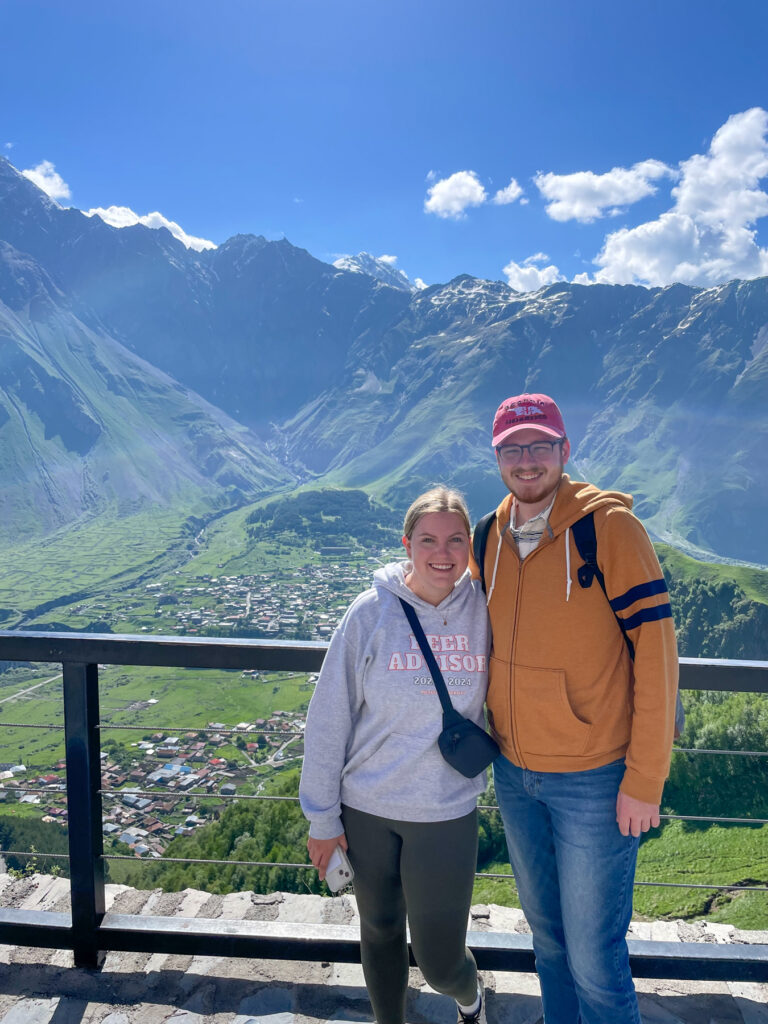
This summer, we, along with 14 other Mercer students and four faculty members, had the unique opportunity to work at Beteli, forge relationships with its residents, and participate in its critical diplomatic mission as part of Mercer On Mission.
We were tasked with planning and executing a four-week summer camp for Ukrainian refugee children living in Tbilisi. These children and their families migrated mostly from Eastern Ukraine, though a few came from the central and Western regions of the country as well, in the aftermath of Russia’s invasion in early 2022. They have endured traumas that no one their age should have to: leaving their homes and everything they have ever known and moving nearly 1,200 miles to a new country with an entirely different language and culture.
Suffice it to say their childhoods have been far more complicated than most.
This is where we came in: The main goal of our summer camp was to provide these kids with some joy and entertainment in an otherwise difficult and tumultuous period of their lives. We had other objectives as well, like helping them improve their English language skills, but more than anything, we wanted to make them smile and convey that despite the trauma of the last couple of years, everything would be all right eventually.
During our initial days at Beteli, we faced a number of challenges. First was the language barrier. Trying to hold the attention of roughly 30 kids aged 8 to 13 who spoke an entirely different language was no easy feat. Even with the help of a translator, we struggled to convey instructions and connect with the kids during the first part of our summer camp. The challenges with the language barrier never fully went away, but the more time we spent with the kids, the easier things got.
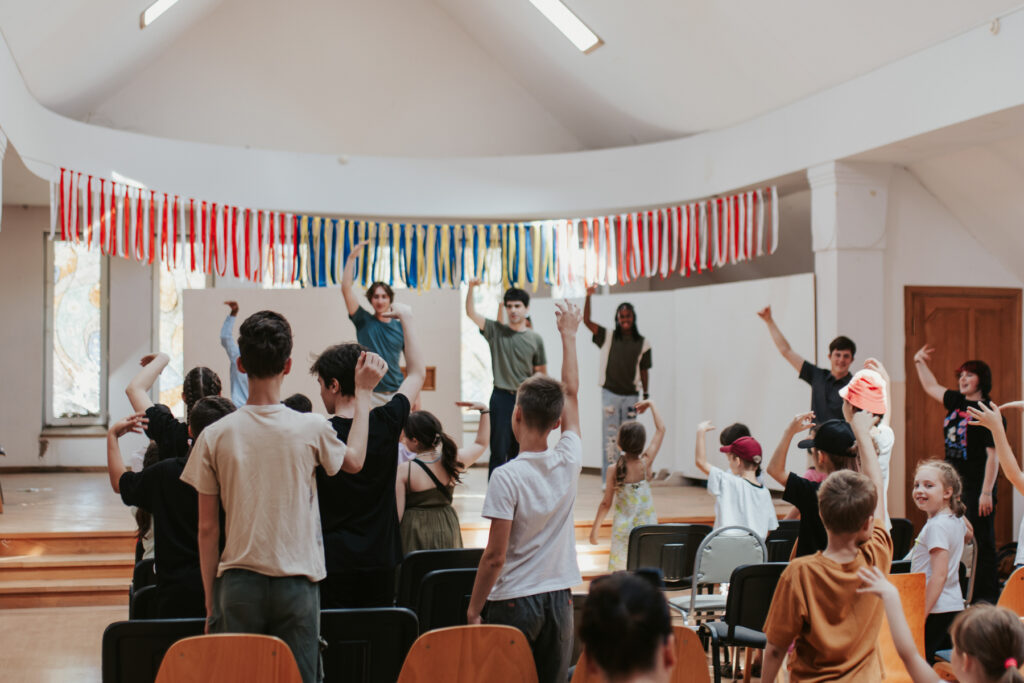
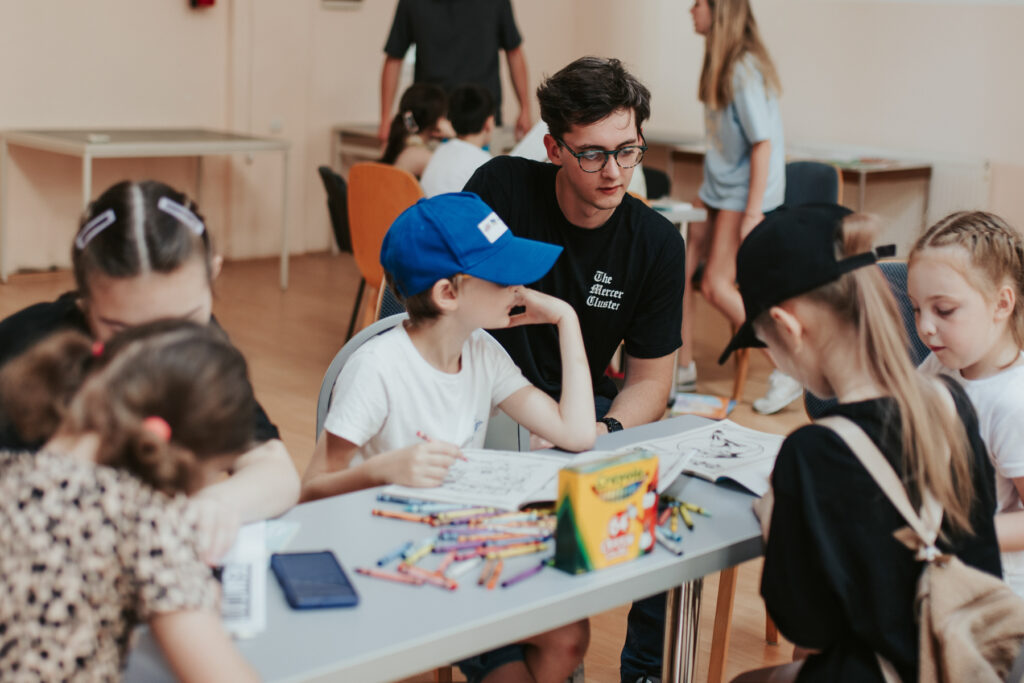
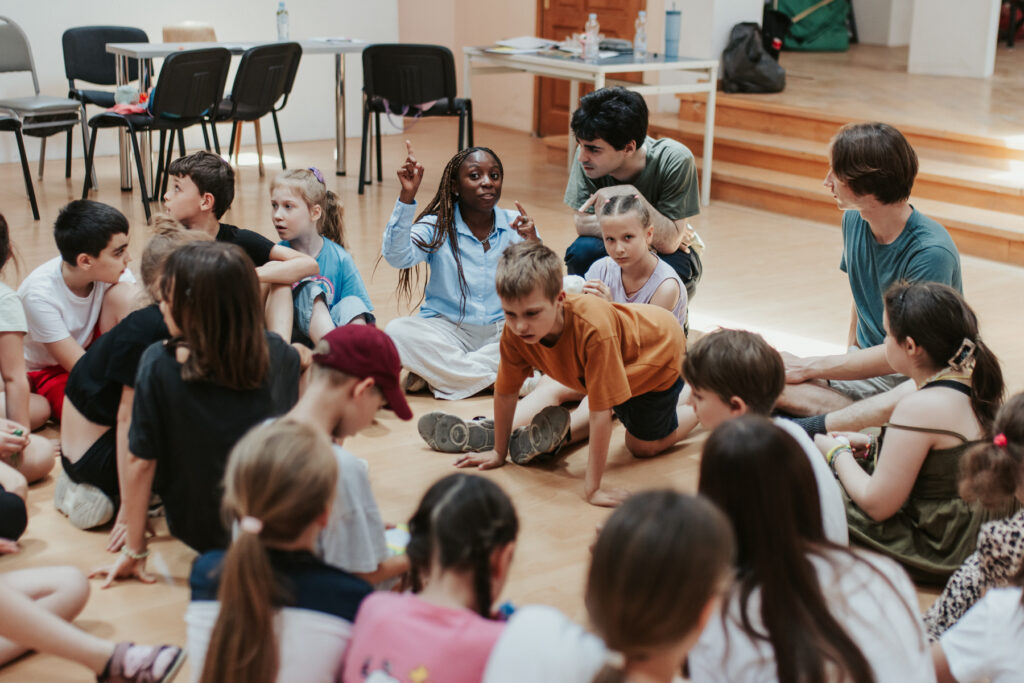
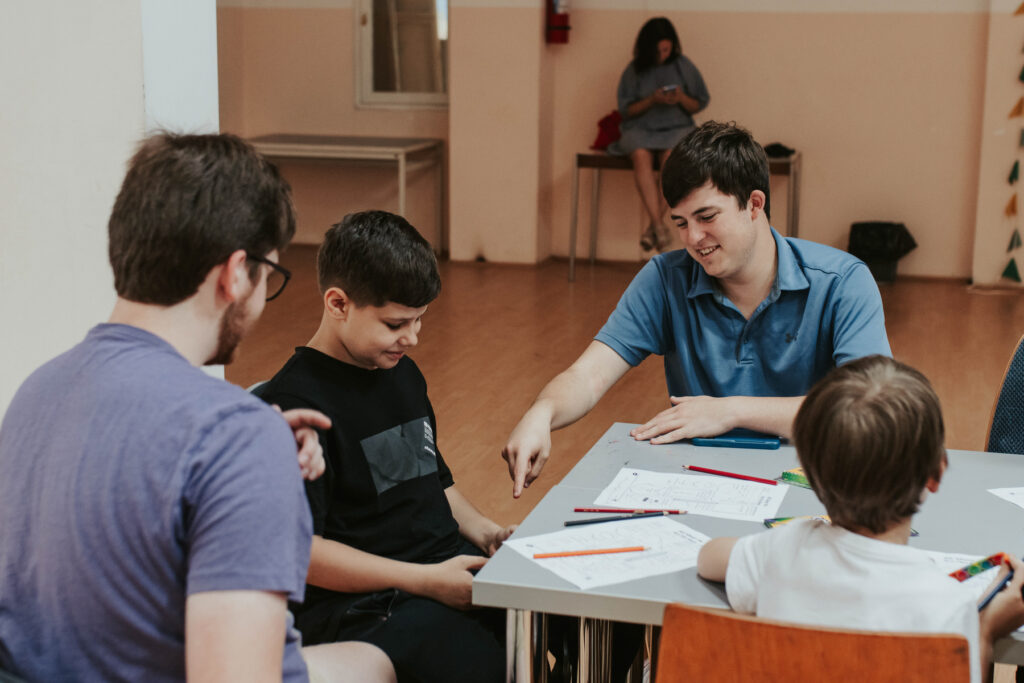
Through simple activities like playing duck, duck, goose; making cootie catchers; and jumping rope, we started to gain their trust and form strong bonds and friendships. We learned about their favorite books, video games and hobbies. They showed us photos of their family members and pets, and we did the same. We made friendship bracelets, had water gun fights, and danced to both American and Ukrainian pop music together, smiling and laughing all the while.
The final days of camp were marked by hugs, gift giving and many heartfelt goodbyes. What started as a project marred by seemingly insurmountable challenges concluded with scores of new friendships that will hopefully last a lifetime.
In reflecting on our time at Beteli, one question keeps returning to us: What was the true value of our summer camp for the Ukrainian children? Was attempting to provide them with entertainment and a few English lessons really the extent of it, or were there other takeaways that could be derived from our time in Tbilisi?
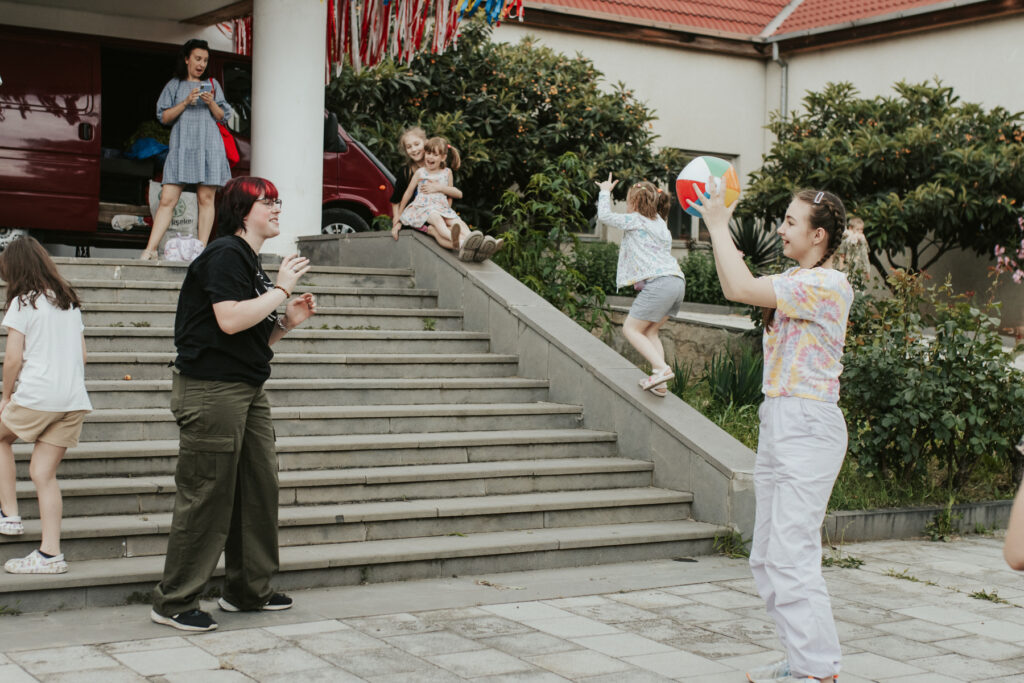
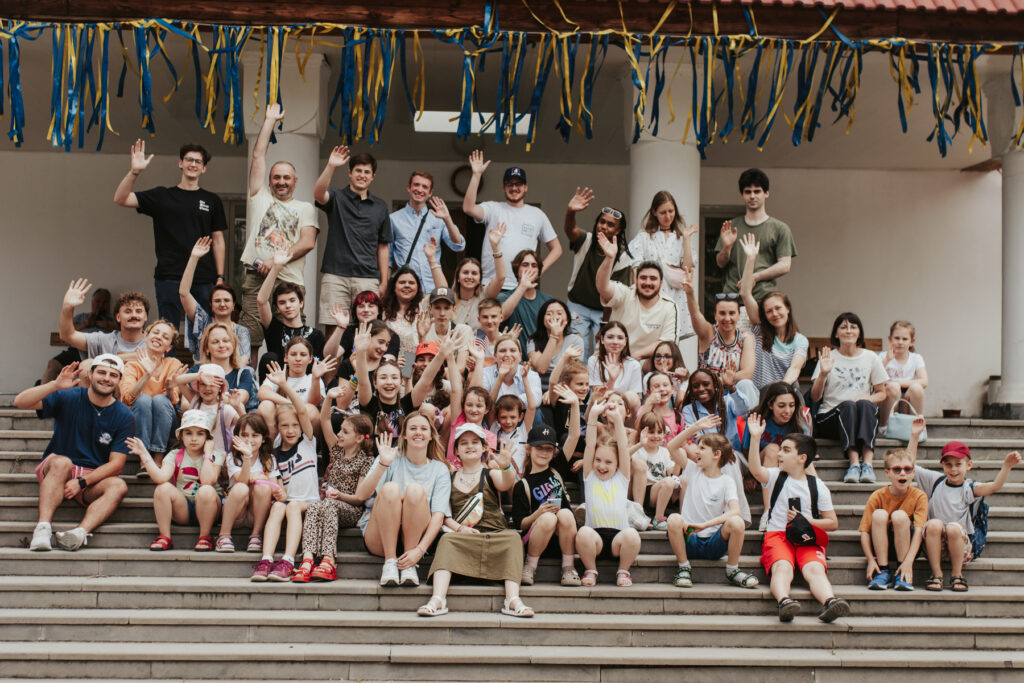
For starters, we did not just have the opportunity to form relationships with Ukrainian refugee children. We also had the pleasure of meeting and interacting with some of their mothers. Over the course of our four weeks at Beteli, these women shared with us something incredibly special: their culture. They taught us how to paint pysanky, which are traditional Ukrainian Easter eggs that are as beautiful as they are complicated to make. They also cooked us borsch, a delicious beet soup that is a staple dish across Ukraine.
As one of the Ukrainian mothers remarked, given Russia’s current denial of Ukraine’s sovereignty and unique cultural identity, it is more important than ever to learn about, celebrate and proliferate Ukrainian culture. Through crafts and cuisine, we had the opportunity to do just that at Beteli this summer. It was a truly invaluable experience.
Our newfound friendships with the Ukrainian kids yielded valuable takeaways as well. Perhaps most notably, there is no longer any doubt in our minds that it is possible to form connections with people whose lives are entirely different from our own. Despite being from opposite sides of the world and speaking vastly different languages, we still managed to form strong bonds with the children who attended our camp. By showing kindness and a willingness to listen to their stories, we were able to gain their trust, just as they gained ours.
Ultimately, our experience at Beteli left us feeling hopeful for the future of our increasingly divided world. Despite the rampant polarization present in this day and age, our new Ukrainian friends have taught us what is possible when we come together and learn from one another with kindness, empathy and love as human beings.
